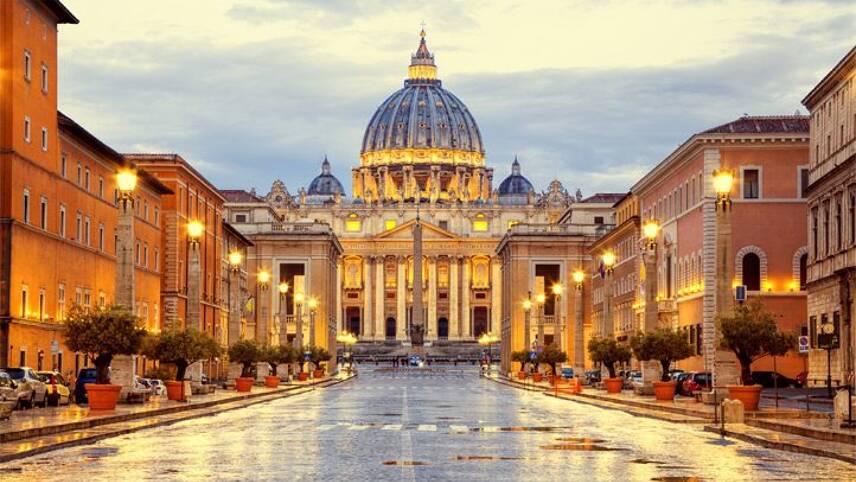Register for free and continue reading
Join our growing army of changemakers and get unlimited access to our premium content

The role of the Pope is stated as providing “moral guidance”
Called the Council for Inclusive Capitalism, the initiative represents businesses with more than $2trn of market capitalization and more than $9.6trn in assets under management. Business members are known as Guardians and represent firms including MasterCard, Visa, DuPont, Salesforce, EY, the Estee Lauder Companies, Kering, Johnson & Johnson and BP
The new Council is also supported by UN Special Envoy for Climate Action and Finance Mark Carney, the State of California, the Principles for Responsible Investment (PRI), the OECD, the Rockefeller Foundation and the International Trade Union Confederation.
The aim of the new non-profit is stated as “building a fairer, more inclusive, and sustainable economic foundation for the world” by amassing enough private and public sector influence to drive systematic change. Its guiding principles are listed as trust, fairness, responsibility, dynamism and sustainability – defined in terms of people and planet.
By joining the Council, businesses commit to developing measurable targets for embedding these principles in their business models and their external engagement, and to reporting progress in line with the UN’s Sustainable Development Goals (SDGs). As of December 8, 231 commitments have been made by 28 organisations, covering issues like climate change, waste, racial equality and gender equality.
“Capitalism has created enormous global prosperity, but it has also left too many people behind, led to degradation of our planet, and is not widely trusted in society,” Council founder Lynn Forester de Rothschild said.
“This Council will follow the warning from Pope Francis to listen to ‘the cry of the earth and the cry of the poor’ and answer society’s demands for a more equitable and sustainable model of growth.”
Forester de Rothschild is the managing partner of Inclusive Capital Partners and will be managing the Council on behalf of the Vatican. The role of the Pope is stated as providing “moral guidance”.
Purpose-led business
In the context of 2020, purpose-led business has become more of a hot topic than ever, with consumers looking to support firms that have helped communities through Covid-19.
The University of Cambridge Institute for Sustainability Leadership (CISL) recently published a ten-point plan, based on discussions with leading executives and sustainability professionals, designed to act as a manifesto for purposeful business.
And, a few months back, the chief executives of some of the world’s most recognisable companies, including L’Oreal, co-signed a letter outlining how the purpose-led economy will grow post-Covid-19.
But for all the talk about purpose-led business, progress against the metric the new council is using – the SDGs – has been slow. UN Secretary-General Antonio Guterres warned this year that not only was progress off-track against the majority of sub-targets and indicators in 2019, but that the pandemic is likely to cause further delays without a strong green recovery approach globally.
Sarah George


Please login or Register to leave a comment.